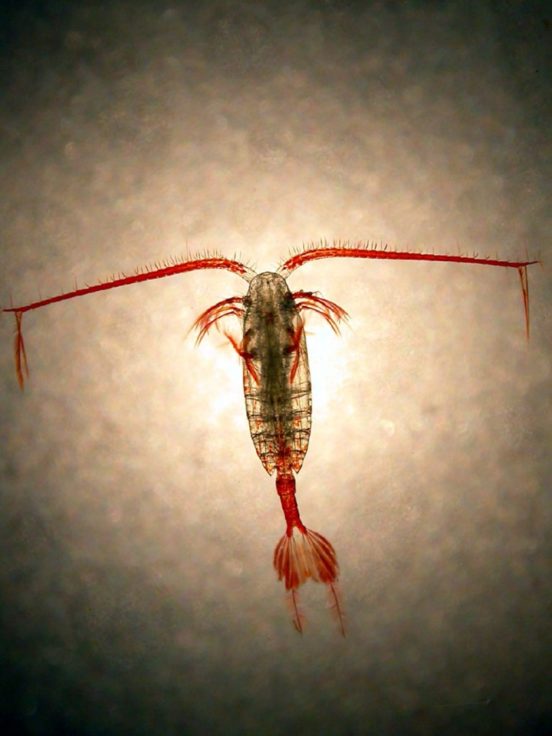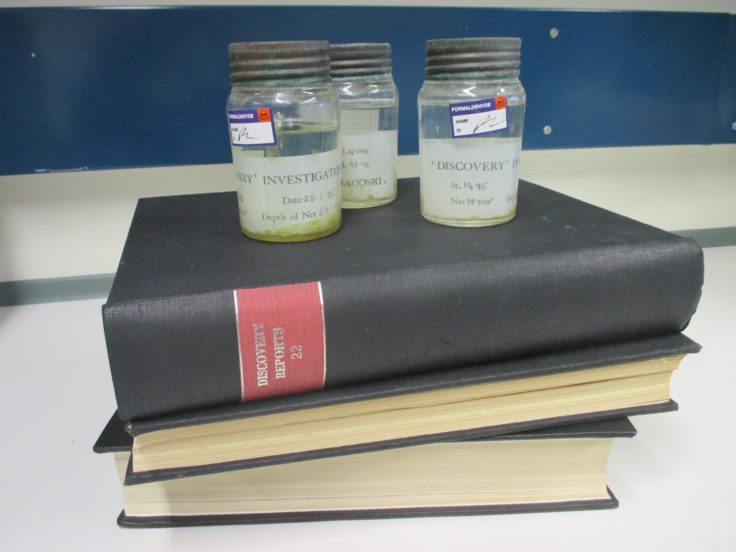Zooplankton resilient to long-term warming
Temperature plays an important role in the distribution of ocean plankton communities and has the potential to cause major distribution shifts, as recently observed in the Arctic.
A new study from scientists at British Antarctic Survey shows that zooplankton, tiny animals that drift in the sea making up the base of the food web, which live in the Southern Ocean have been resilient to warming ocean temperatures. The results are published today in the journal Global Change Biology.

The team studied the spatial distribution of the zooplankton communities, which are dominated by copepods such as Calanus propinquus, and their abundance in relation to sea surface temperatures between two distinct periods around 60 years apart. By examining net samples and in situ temperature records from recent ship expeditions (1996-2013) and from the well-regarded Discovery Investigations (1926-1938), they show that although the sea surface temperature increased by 0.74 degrees C, the geographic location of the plankton remained the same.

Lead author, Professor Geraint Tarling, from British Antarctic Survey, says: “We were expecting to find a major poleward migration of the zooplankton community, as has happened in the Arctic. The fact that the community remained in the same place despite almost a degree of warming over the past six decades shows they are far more resilient than we first thought.”
Read the paper here